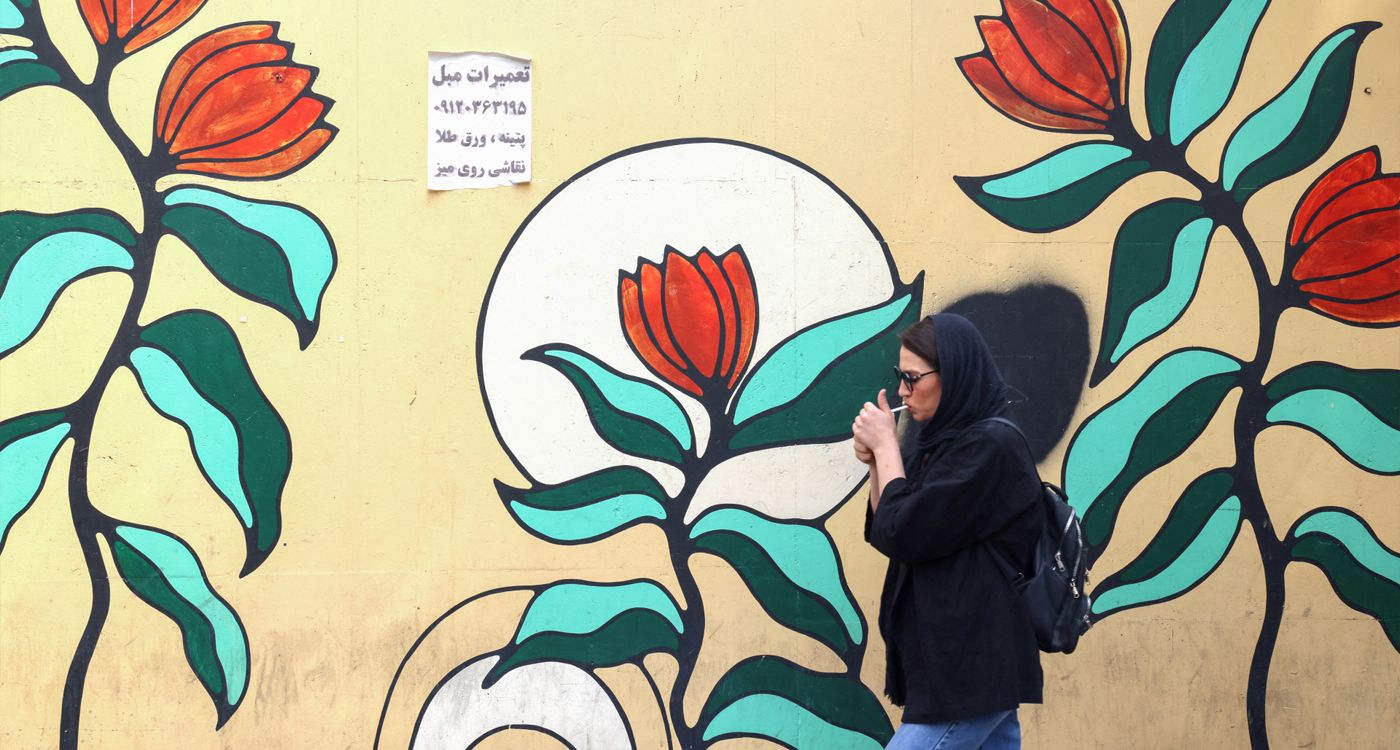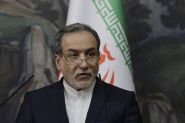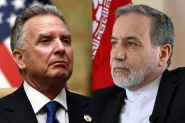- Home
- Middle East
- Fear, Indifference in Iran Over Threat of Israeli Attack

A woman lights her cigarette on a Tehran street, September 15, 2024. ©Atta KENARE / AFP
With Israel threatening retaliation against Iran's missile attack, many on the streets of the Iranian capital appeared unfazed, while some expressed worries for their safety.
All around Tehran, streets remained choked with the usual traffic as families took leisurely strolls through parks at the start of the weekend.
Chatter poured onto the streets from cafés full of people, largely seeming unbothered by the prospect of Israel carrying out its vow to attack its arch-enemy Iran.
"I'm not worried at all," said Elham, a 42-year-old housewife, who asked that only her first name be used.
"If it (Israel) strikes us, we will be martyrs," she said while strolling with her husband and daughter through Valiasr Square, one of Tehran's busiest spots.
On October 1, Iran launched around 200 missiles on Israel, in what it described as retaliation for the killing of Tehran-aligned militant leaders in the region and a general in Iran's Revolutionary Guards.
Israel has since vowed to retaliate, with Defense Minister Yoav Gallant saying on Wednesday that the Israeli response would be "deadly, precise, and surprising."
‘Economic and Military Consequences’
"I don't think we are currently in a situation that the two countries are seeking an all-out direct war," said Hamid, a 29-year-old university student.
"It will have severe economic and military consequences" on both countries, he added.
The October 1 attack on Israel was Iran's second-ever direct strike against Israel. It followed a missile and drone barrage in April after a deadly strike on Iran's embassy consular annex in Damascus, which Tehran blamed on Israel.
Iran warned that any Israeli attack on its "infrastructure" would provoke an "even stronger response."
Israel and the United States have been in talks over the possible Israeli retaliation, with US President Joe Biden warning against striking oil facilities or nuclear infrastructure.
In Valiasr Square, where Palestinian flags fluttered as well as the flag of Lebanon's Hezbollah – armed and financed by Iran – some expressed concern over a possible Israeli strike.
"We are of course worried about our security," said Iraj, a 40-year-old university professor.
"We wouldn't like Iran to enter a critical war situation or for the war to be expanded to this country," he said.
Leyli, a 55-year-old teacher, who arrived in Tehran on Thursday, expressed similar concerns.
"I was terrified until I got here," she said.
"I was thinking that a missile might fall on me any second."
With AFP
Read more



Comments